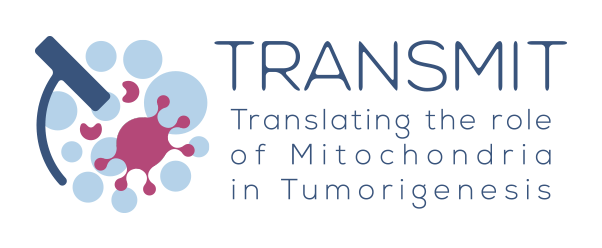Mitochondrial complex I-driven regulation of the hypoxic response in cancer cells (ESR 5)
Project Description
1) Job Summary. The candidate will be enrolled in a PhD program to work in molecular oncology, learning and exploiting molecular genetics and biology techniques, to generate and characterize cancer cell models targeted for metabolic and tumor suppressor proteins, and test them for modifications in their tumorigenic potential, both in vitro and in nude mice models. Starting from the knowledge of the oncojanus function for respiratory complex I genes, the candidate will investigate the synthetic lethality of other molecular targets with such genes. In collaboration with other consortium partners and through secondments, the candidate will acquire knowledge of specific techniques to tackle the issues proposed. Collateral skills will be developed during the 3-years fellowship, such as grant and paper writing, fund raising abilities, outreach and dissemination in the field of molecular oncology.
2) Job description: Application refers to an Early Stage Researcher (ESR) position to be trained for 36 months at the Department of Medical and Surgical Sciences, University of Bologna, in the framework of the TRANSMIT project entitled “Mitochondrial complex I-driven regulation of the hypoxic response in cancer cells” (ESR 5). Supervisor: Prof. Giuseppe Gasparre.
Adaptation to hypoxia is one of the main features of aggressive cancer cells, a process mediated by the hypoxia-inducible factor 1α (HIF1α). During oxygen shortage, HIF1α becomes stabilized following inhibition of α-ketoglutarate (α-KG)-dependent prolyl-hydroxylases (PHDs). Therefore, α-KG levels are critical in the cell capacity to respond to hypoxia through HIF1α, which acts as a key transcription factor to transcribe a large set of genes involved in the upregulation of glycolysis, promotion of neoangiogenesis and metastasis. In turn, α-KG dehydrogenase (α-KGDH) is regulated by NADH levels, the main substrate of CI. Tumors in which CI is mutated and disassembled, such as benign oncocytomas, are unable to respond to hypoxia and progress to malignancy due to their lack of NADH consumption and consequent accumulation of α-KG. To translate these findings into a potential adjuvant therapeutic strategy, and to deeply dissect the biochemical mechanisms linking CI disruption to hypoxia adaptation, the candidate will use genome editing approaches such as Zinc Finger Nucleases or CRISPR technology to generate knock-out (KO) clones for CI subunit NDUFS3, essential to assemble CI, starting from cancer cell models such as osteosarcoma 143B, colon HCT116 and ovary SKOV-3, whose growth kinetics in nude mice are known. The candidate will hence characterize clones for NADH and α-KG accumulation following CI disruption and will attempt to reconstruct the metabolic routes used by the KO clones to survive, via metabolomics analyses. The candidate will exploit a hypoxic chamber to challenge KO clones to forcedly respond to hypoxia and will assess by western blot whether they are able to trigger HIF1α stabilization. Clones will be challenged for their anchorage-independent growth ability in soft agar, and subsequently the candidate will proceed to observe whether KO clones are able to form xenografts in nude mice. The hypoxia level of xenograft will be evaluated with pimonidazole, whereas HIF1α stabilization in vivo will be assessed by immunohistochemistry and western blot. Moreover, the candidate will have available a syngenic HCT116 cell line devoid of tumor suppressor TP53, whose role in mitochondrial metabolism regulation is well known to act through TP53-induced glycolysis and apoptosis regulator and respiratory complex IV (31). The candidate will obtain NDUFS3 knock-out of p53-null HCT116 to compare with p53-competent HCT116, to unravel the metabolic rewiring occurring in the absence of a pivotal tumor suppressor gene. The candidate will attempt to understand whether the anti-tumorigenic effect of NDUFS3 KO may be overcome by the abolishment of p53.
Principal Investigator: Prof. Giuseppe Gasparre
ESR 5: Nikkitha Umesh Ganesh
Key personnel:
Dr. Ivana Kurelac, Junior Assistant Professor
Dr. Giulia Girolimetti, Post-Doc fellow

